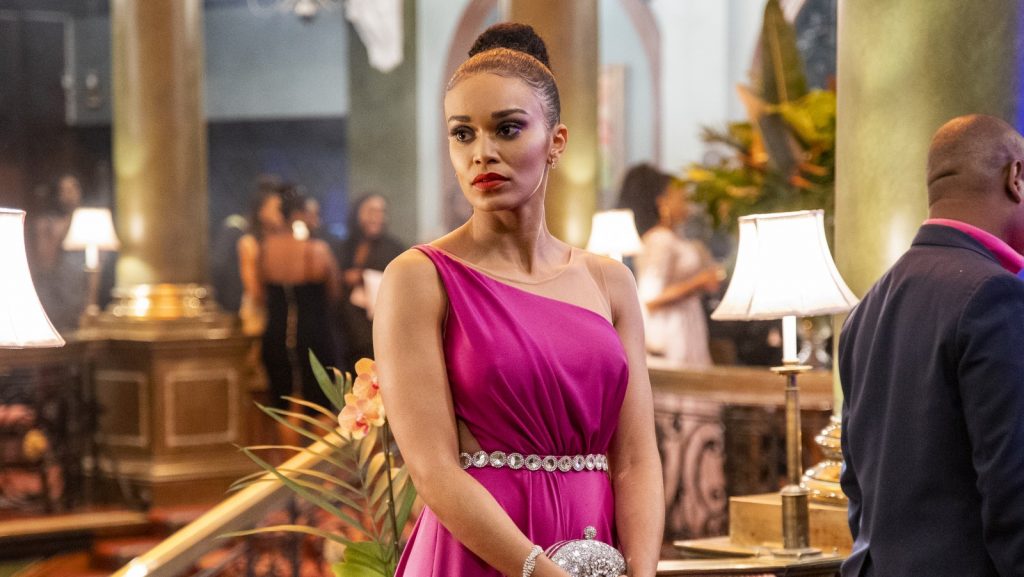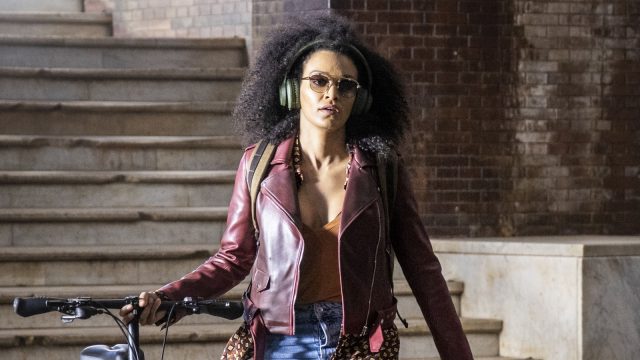With stablecoins gaining traction and regulation improving, African merchants may be nearing a crypto tipping point. Here’s why 2026 could mark a shift from hesitation to adoption.
Queen Sono: an engrossing tale of a defiant woman in a broken country

Action drama with a splash of espionage isn’t a genre combo you’d associate with South African cinema, but you’re just going to have to get used to it. Queen Sono, a series inspired by spy thrillers laced with high-tech and swift fist-fights, made its global debut on Netflix on Friday.
Pearl Thusi plays the titular character, an engrossing, troubled, but determined daughter of a new South Africa who’s fuelled by haunting memories of her slain freedom fighter mother.
It’s effectively up to her to stop a bad Russian woman from strong arming South Africa’s “idiot” president into another Arms Deal, which would further split an unequal society into the militarised and the meek.
A strong female character written for modern day South Africa is something we’ve all dearly needed, and with Queen Sono, Kagiso Lediga has given us just that.
Without any doubt, Thusi’s portrayal of Sono is the best thing about this six-part mini-series. She commands the attention of the viewer in every scene she’s in, whether it’s goofing off with her best psychologist friend, or breaking an unsuspecting bad guy’s arm. Crunch.

While she’s written as an everyday South African super hero, a modern day Wonder Woman borne of the country’s struggle for its identity, she also has flaws.
As much as Queen Sono centres on the country’s macro issues of state capture, xenophobia, the transition to democracy, and the inertia of this process, it also explores the microcosm of the self.
A strong female character written for modern day South Africa is something we’ve all dearly needed
Sono may be a spy, but she’s a woman living in post Apartheid South Africa. She struggles with living up to her mother’s legacy, her internal imposter syndrome-like conflict, her desire to be the best at her craft, and her need to find her place in the world beyond a super spy. While she seems to find comfort in the heart of danger, she also yearns to be more than just a walking secret.
But she can’t be more than that. Her success is her secret, and walking away from that would mean the loss of the only identity she seems to know. At the same time, revealing this secret endangers her closest friends and family, who are few and far between in this world.
But this is at the show at its peak, which sadly is a little too infrequent.
Queen Sono has a problem with pacing. It takes some four episodes to divulge Sono’s and the other key characters’ back stories, something that may have been more beneficial divulging earlier. It does serve as a natural crest to the final act of the series, but does highlight just how much padding clads the first three episodes.
Action scenes and actual espionage antics are few and far between, with the show spending the lion’s share of its runtime setting up characters, key groups, locations, and events early on. That’s okay, but the early pacing suggests that this may’ve done better as a 10-12 episodes-per-season show rather than a mini-series.
This additional screen time could’ve been used to build the world more meticulously, or to set up episodic dilemmas that build to a crescendo and explore character conflicts. Compared to Sono the universe, and the human bodies in it, feels underdeveloped.
Queen’s sidekick Fred (above) is the stereotypical computer genius, but he too has personal demons. While this comes to a head in episode four, it just peters out after that. It’s never spoken of again. And the viewer is left wondering why it was even brought into the show as a story element. Not to mention he’s given some of the clunkiest exposition and dialogue of the entire show.
Shandu (Vuyo Dabula), a character that emerges as decidedly important later on, does receive a decent portion of screen time but isn’t awarded the swiftest sentences either. When he’s not lecturing an evil character about why they shouldn’t be evil, he’s being surprisingly evil himself. But, note, it’s these flaws and motivations that probably make him my second favourite character in this series.
Queen Sono uses at least ten languages in character dialogue across its six episodes
But accolades should be given to a number of other aspects. For one, this show is simply gorgeous.
Kagiso Lediga knows how to make Johannesburg look good with sharp contrasts and bright, popping colours drenching Queen Sono in stark hues at all times of day. Other filming including Zanzibar, Nairobi and Harare are abuzz with life. If anything, this show’s an excellent travel ad for African destinations.

Fist fight scenes, when they do appear, are excellent and more reminiscent of single-camera spy flicks of the 1960s, dropping the multiple jump cut fetish seen in recent action films for a more acute focus on the actors’ actual physical training.
The soundtrack, while jarring during some transitions, is carefully picked by the creators to showcase Africa’s rich audio talents. While I would’ve liked more silence during tense scenes, I can’t fault the music choices.
Finally, the number of languages used in Queen Sono is astounding. Instead of just filming in English — something the creators could’ve easily done — I counted at least nine other languages used in character dialogue across the six episodes, including Zulu, Tsonga, Shona, Swahili, Setswana and Afrikaans. I can’t think of another series that’s this multilingual.
Beyond its highs and its thrills, as a show Queen Sono does have its clear problems. There’s a hard-to-miss unsightly recycled cut in episode four, few dubbing errors across other scenes, while the narrative itself doesn’t throw many mind-bending curveballs. But these aren’t major issues, and aren’t enough to paint this show as a “no thanks”.
For me, it wasn’t quite as dramatically soul-stirring as other South African shows like The Girl From St. Agnes, but it would be daft comparing genres. One thing it does extremely well is showcase the abundant creative talent in this country and on this continent.
Give it a go. Hell, watch it even if it’s just to hear the South African president call for sugar water in the middle of a national crisis.
Imagine if this was a documentary.
Queen Sono is available to stream from 10am on Friday 28 February on Netflix in South Africa.
Images: Netflix


